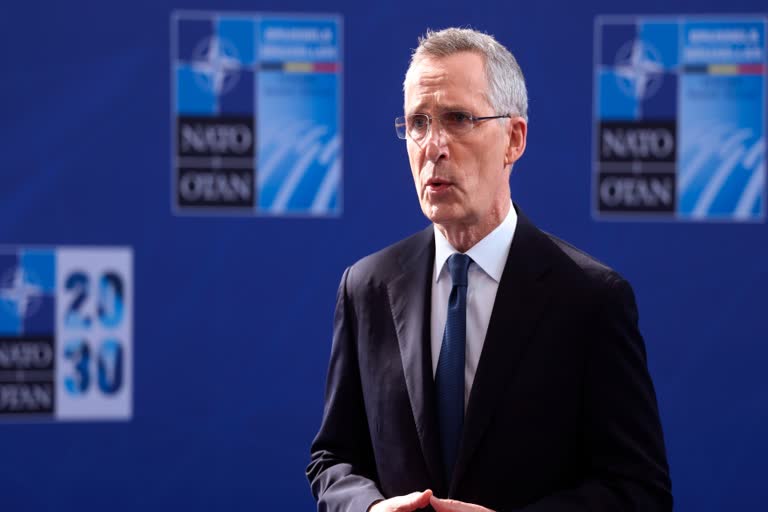Brussels: NATO leaders on Monday expanded the use of their all for one, one for all, mutual defence clause to include a collective response to attacks in space. Article 5 of NATO's founding treaty states that an attack on any one of the 30 allies will be considered an attack on them all. Until now, it's only applied to more traditional military attacks on the land, sea, or in the air, and more recently in cyberspace.
In a summit statement, the leaders said they consider that attacks too, from, or within space" could be a challenge to NATO that threatens "national and Euro-Atlantic prosperity, security, and stability, and could be as harmful to modern societies as a conventional attack.
Such attacks could lead to the invocation of Article 5. A decision as to when such attacks would lead to the invocation of Article 5 would be taken by the North Atlantic Council on a case-by-case basis, they said. Around 2,000 satellites orbit the earth, over half operated by NATO countries, ensuring everything from mobile phone and banking services to weather forecasts. Military commanders rely on some of them to navigate, communicate, share intelligence and detect missile launches.
Read more: NATO leaders declare China a global security challenge
In December 2019, NATO leaders declared space to be the alliance’s “fifth domain” of operations, after land, sea, air and cyberspace. Many member countries are concerned about what they say is increasingly aggressive behaviour in space by China and Russia. Around 80 countries have satellites, and private companies are moving in, too. In the 1980s, just a fraction of NATO's communications was via satellite.
